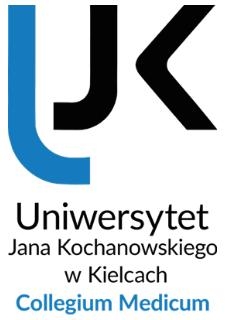Digital Library of the Jan Kochanowski University contains 13 466 digital objects
Object
Title: Ocena sposobu żywienia, aktywności fizycznej i stanu odżywieniadzieci ze spektrum autyzmu
Creator:
Alternative title:
Abstract:
Wstęp: Problematyka stanu odżywienia dzieci z zaburzeniami ze spektrum autyzmu nie została jeszcze dostatecznie zbadana. Podkreśla się, że dzieci z ASD są wymagające pod względem żywieniowym. Wykazują wybiórczy i bardzo „wybredny” wzorzec żywieniowy, a także wrażliwość sensoryczną, która predysponuje do znacznie ograniczonego spożycia produktów spożywczych. Cel pracy: Celem głównym podjętych badań była ocena sposobu żywienia, aktywności fizycznej i stanu odżywienia dzieci ze spektrum autyzmu. Materiał i metodyka: Grupę badaną stanowiło 131 dzieci z ASD i 157 dzieci bez ASD w wieku od 4 do 9 lat oraz ich rodzice. Sposób żywienia dzieci oraz wybrane zwyczaje żywieniowe zostały ocenione z pomocą badania ankietowego i analizy zapisu bieżącego spożycia. Aktywność fizyczną mierzono przy pomocy akcelerometrów ruchu. Stan odżywienia respondentów oceniono metodami antropometrycznymi. Przeprowadzono również obiektywną ocenę wiedzy żywieniowej rodziców badanych dzieci. Wyniki: Dzieci z ASD w porównaniu do dzieci bez ASD rzadziej spożywały nasiona roślin strączkowych, surówki warzywne, soki owocowe i warzywne, sery dojrzewające i jaja. Niechętnie zmieniały przyzwyczajenia dotyczące posiłków i wymagały określonych, powtarzalnych schematów podczas jedzenia. Często przejawiały zachowania agresywne wobec rodziców lub samych siebie. Rodzice dzieci z ASD wyróżniali się dobrym poziomem wiedzy żywieniowej. Dzieci z ASD wykazywały większą aktywność fizyczną niż dzieci bez ASD. U ponad połowy z nich stwierdzono niedostateczne spożycie energii, tłuszczów, węglowodanów, błonnika pokarmowego, witaminy D i wapnia. Choć ryzyko rozwoju nadwagi i otyłości stwierdzono u 30,0% dzieci z ASD, to aż 20,0% dzieci w badanej grupie było niedożywionych. Wnioski: Problemy towarzyszące spożywaniu posiłków tj. odmowa jedzenia, niechęć do próbowania nowych potraw czy nacisk na spożywanie jedynie kilku produktów spożywczych występują istotnie częściej wśród dzieci z ASD, dlatego jednym z członków zespołu terapeutycznego powinien być doświadczony dietetyk. U dzieci z ASD stwierdzono niedostateczne spożycie składników odżywczych mimo dużej wiedzy na temat dietoterapii ich rodziców. Taki sposób żywienia i niewystarczająca aktywność fizyczna mogą mieć wpływ na rozwój nadwagi i otyłości, które stwierdzono u 30,0% dzieci z ASD i ponad dwukrotnie częściej u dzieci bez ASD. Jednocześnie u 1/5 dzieci z ASD występuje zwiększone ryzyko niedożywienia, które zależy od dużej selektywności żywieniowej, niewystarczającej wartości energetycznej diety, niedostatecznego spożycia tłuszczów, węglowodanów, a także innych składników odżywczych. Niezbędne jest zatem stałe monitorowanie stanu odżywienia dzieci z ASD.
Introduction: The issues related to the nutritional status of children with autism spectrum disorder have still not been sufficiently analyzed. It is highlighted that children with ASD are demanding in terms of nutrition. They exhibit a selective and very “fastidious” dietary pattern as well as sensory sensitivity which predisposes to a severely limited selection of food products in the diet. Aim of the research: The main aim of the conducted research has been to assess the diet, physical activity and nutritional status among children with autism spectrum disorder. Material and methods: The analyzed group comprised of 131 children with ASD and 157 children without ASD aged between 4 and 9 as well as their parents. The diet of the children and selected eating habits were assessed with the use of a questionnaire and an analysis of the record of current consumption. Physical activity was measured with the use of motion accelerometers. The nutritional status of the respondents was assessed with anthropometric methods. The nutritional knowledge of the parents of children in question was objectively analyzed. Results: Compared to children without ASD, children with ASD wouldn’t consume legume seeds, vegetable salads, fruit and vegetable juice, ripening cheese and eggs. They reluctantly changed habits within the scope of meals and required specific, repetitive patterns while eating. They often demonstrated aggressive behavior towards the parents and themselves. Parents of children with ASD distinguished themselves with good level of knowledge in nutrition. Children with ASD exhibited higher physical activity than children without ASD. More than half of them presented insufficient consumption of energy, fats, carbohydrates, dietary fiber, vitamin D and calcium. Although the risk of overweight and obesity was found in 30,0% of children with ASD, 20,0% of the children in the analyzed group were underweight. Conclusions: Problems accompanying eating meals i.e., refusal to eat the food, reluctance to trying new dishes or pressure on eating only several food products are significantly more frequent among children with ASD. Thus, the therapeutic team should include an experienced dietician. It was found that children with ASD consume insufficient amount of nutrients, despite of their parents' extensive knowledge in diet therapy. Such eating habits combined with low physical activity might lead to overweight and obesity which were confirmed in 30,0% of children with ASD and almost twice as much in children without ASD. At the same time, 1/5 of children with ASD exhibit an increased risk of malnutrition which depends on considerable food selectivity, the deficient energy content of the diet, insufficient consumption of fats, carbohydrates, as well as other nutrients. In the case of children with ASD, continuous monitoring of their nutritional status is essential.
Additional notes:
Zawiera bibliografię ; Zawiera ilustracje Streszcz. ang.
Identifier:
oai:bibliotekacyfrowa.ujk.edu.pl:9222
Computer catalogue:
Language:
Degree name:
Date obtained:
Degree grantor:
Uniwersytet Jana Kochanowskiego w Kielcach
Supervisor:
Suliga, Edyta Sobaś, Kamila. Promotor pomocniczy
Field:
Dziedzina nauk medycznych i nauk o zdrowiu
Scientific disciplines:
Faculty:
Type:
Access rights:
tylko w Oddziale Informacji Naukowej
Publication status:
Object collections:
Last modified:
Jan 29, 2026
In our library since:
Jul 21, 2023
Number of object content hits:
1
All available object's versions:
https://bibliotekacyfrowa.ujk.edu.pl/publication/9720
Show description in RDF format:
Show description in OAI-PMH format:
| Edition name | Date |
|---|---|
| Bujak-Krzemińska, Agata, Ocena sposobu żywienia, aktywności fizycznej i stanu odżywieniadzieci ze spektrum autyzmu | Jan 29, 2026 |

